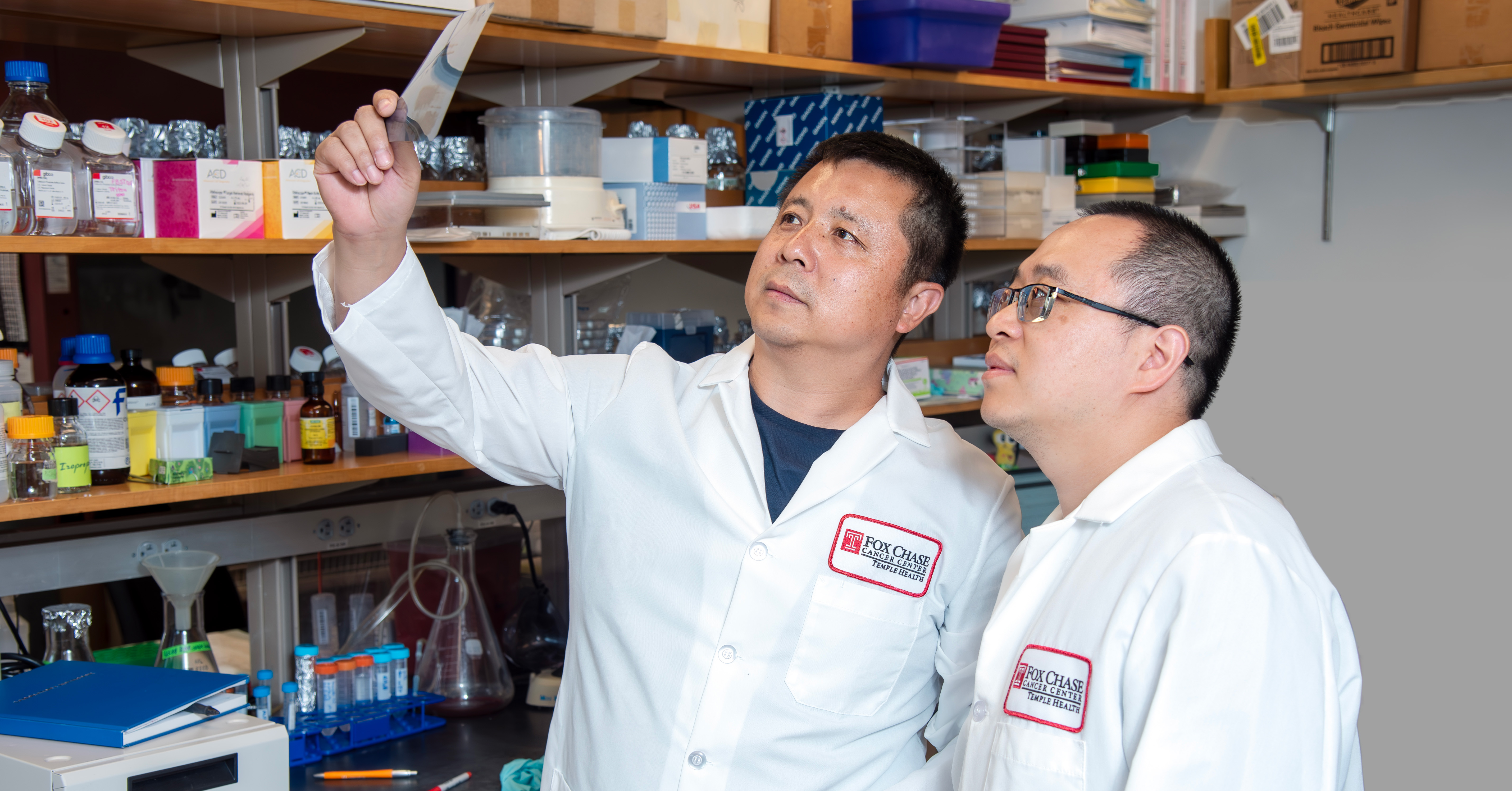
PHILADELPHIA (August 12, 2024) — Differentiation therapy is a relatively new approach to treating cancer that works by “normalizing” cancer cells. Now a study published today by Fox Chase Cancer Center researchers demonstrates that this approach could be an effective treatment for medulloblastoma, a malignant brain tumor.
Differentiation therapy works by harnessing the normal cell cycle through which cells divide, replicate, differentiate into different types, and then mature into their final form. However, cancer cells never complete that cycle and get stuck dividing and replicating, thus growing out of control. Differentiation therapy can coax cancer cells to revert to normal or nearly normal cells without damaging normal cells.
In a mouse study, the researchers demonstrated that T3, a drug that’s already used to treat hypothyroidism, induced tumor cell differentiation to normalize the cells, alleviating symptoms and shrinking tumors. They also showed the mechanism through which thyroid hormone signaling regulates medulloblastoma growth.
“Instead of killing tumor cells we normalize them,” said Zeng-jie Yang, MD, PhD, a Professor in the Nuclear Dynamics and Cancer Research Program and a member of the Cancer Epigenetics Institute at Fox Chase, and a co-author on the study. “We are very excited about the clinical implications.” Yijun “Boris” Yang, PhD, a postdoctoral associate in Zeng-jie Yang’s lab, conducted much of the work and was a co-author on the study, along with several other researchers from Fox Chase and other institutions.
Medulloblastoma is the most common type of malignant brain tumor in children, and few effective treatment options exist. Even with the current approach of chemotherapy and radiation therapy, the disease has a high mortality rate. Treatments are highly toxic, leaving its young survivors with lifelong and life-altering side effects.
In a previous study, the researchers found that medulloblastoma tumor cells can undergo differentiation, after which they lose their capacity for growth. These findings suggested that medulloblastoma could be treated by inducing tumor cell differentiation.
For the new research, they first isolated tumor cells from mice and treated the cells with T3 at different concentrations. They found that even the lowest concentration significantly increased tumor cell differentiation and slowed the cells’ growth. When the cells were transplanted into mice, they failed to develop into tumors.
They then treated the tumor cells with an inhibitor that blocks the interaction between T3 and its receptors. This prevented T3 from triggering differentiation, and the cells continued to grow. Finally, they gave T3 to mice with medulloblastoma. Their tumor growth stopped, and their rate of survival increased.
“Almost overnight, we saw significant improvement in the tumor symptoms of the mice,” Yang said. “We were very excited. We’ve never seen such a dramatic effect.”
While differentiation therapy is now commonly used to treat acute promyelocytic leukemia, its mechanism is still not understood in most tumor types. Yang noted that medulloblastoma is a “perfect model” for studying differentiation therapy in solid tumors, because tumors are fairly uniform, with homogeneous cell types and differentiation status. He said future studies could look at the approach in more complex tumors, like glioblastoma.
“We are pretty confident we will be able to figure out the mechanism for tumor cell differentiation in medulloblastoma and glioblastoma,” he said. “I believe that differentiation therapy will someday be an option for all tumor types.”
Next, researchers are beginning a clinical trial testing T3 as a combination therapy along with conventional treatment in children with relapsed medulloblastoma.
The paper, “Thyroid Hormone Suppresses Medulloblastoma Progression Through Promoting Terminal Differentiation of Tumor Cells,” was published in Cancer Cell.